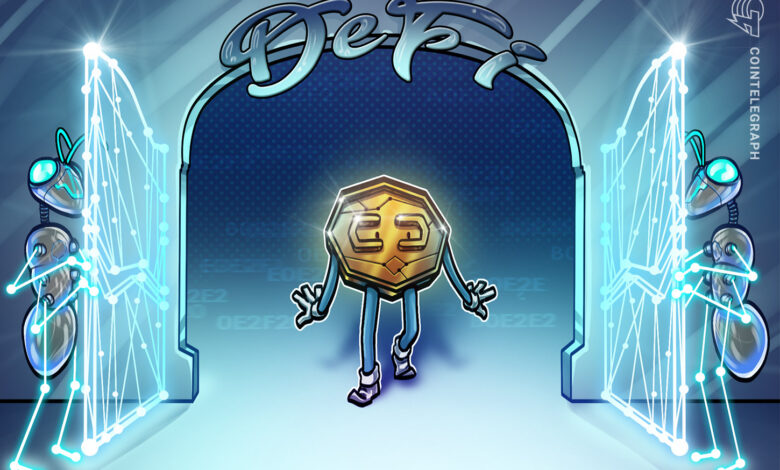DeFi protocols unite to promote permissionless Web3 experiences

The damage caused by the fall of major crypto ecosystems last year is on a path of steady recovery as good actors take proactive measures to rebuild trust among investors. Major players from the decentralized finance (DeFi) ecosystem came together to showcase the incentive behind operating trustless, interoperable and permissionless platforms.
For 24 hours, from Feb. 6 to 7, over 30 DeFi protocols joined in an initiative to “permissionlessly” share tweets from other protocols — thus highlighting the permissionless and interoperable nature of Web3. Projects participating in this campaign include Yearn.finance, MakerDAO, SushiSwap and Aave, among others.
An experiment in social coordination with @MakerDAO pic.twitter.com/lXOFPeqToS
— Element Finance (@element_fi) February 6, 2023
DeFi has amassed mainstream acceptance with significant institutions making their entrance into the space, but it still has a shaky reputation due to its many exploits.
Mamun Rashid, the chief marketing officer at MakerDAO, said that to realize the “full potential” of DeFi, there needs to be a collaboration between the ideas and expertise in the space.
“Together, we can push the boundaries of traditional finance and build a more inclusive and accessible financial system through DeFi.”
The projects collaborating in the campaign defined the “spirit” of DeFi as a more collaborative ecosystem, rather than a competitive one.
Jared Grey, the CEO of SushiSwap, said DeFi is being built to challenge the current status quo of known financial frameworks, which historically create barriers and reduce economic freedom.
“Leveraging the composability of this new technology, we can democratize and provide more equitable, safer, and transparent financial tools and products to reach a global audience.”
Grey said the responsibility to portray the true message of DeFi comes first from within the space. Therefore, the initiative and solidarity of more than 30 builders within the space come at a critical time.
Related: DeFi should complement TradFi, not attack it: Ava Labs CEO | Davos 2023
Over the last year, the DeFi space was a major target for exploits. According to a report from Beosin, DeFi-based projects experienced the highest number of attacks in 2022.
This vulnerability led to a 47.4% rise in security losses in 2022 compared with the previous year, which totaled $3.64 billion in losses.
Additional industry insights revealed that the trend of DeFi exploits should be expected to continue into this year due to new projects entering the market and more sophisticated hackers.
Nonetheless, the space started the year with significant growth, according to a DappRadar report. In January, a new $150 million ecosystem fund was created by Injective to boost DeFi and Cosmos adoption.




